- Home
- Penny Jordan
A Kind of Madness Page 2
A Kind of Madness Read online
Page 2
And now they were jeopardising the whole thing by lightheartedly taking off for two months and leaving their precious business in the hands of a man about whom they knew virtually nothing at all.
Not so, her mother had objected when she had pointed these facts out to her. In the past few months they had got to know Carter very well indeed. It was true that initially he had merely been looking them up out of good manners, having returned to England after a spell working in America. But it seemed that now for some reason he was seriously considering settling in Cheshire and that, moreover, he had plans to enter a similar line of business to her parents’, so that he had both the experience and the inclination to take over the running of the business while they were away.
Elspeth had found all this highly suspicious. Her memories of Carter were of a tall, thin male with a shock of overlong dark hair who had seemed very adult to her teenage self, someone who had made her very aware of her own immaturity. Her mother was even talking enthusiastically about him buying a small farm due to come up for sale next to their own land, so that the two ventures could be run as one, but her parents were so innocent…so naïve. They couldn’t see what Peter had been quick to point out to her—something she had not realised at first herself—that it might well be that Carter did intend to start up a business, a business which would be in direct competition to their own—and what better way to get a head start than by destroying their business while they were away and he was in charge?
Of course, she had known immediately it would be useless to point this out to her mother. For one thing, she knew that her mother would only laugh and dismiss Peter’s suspicions as unthinkable.
She had talked the whole thing over with him and he had pointed out further aspects of the situation which had not occurred to her: namely, that not only might Carter not take adequate care of her parents’ venture, but that he might actually deliberately try to undermine everything they had built up. ‘After all, if he is serious about setting up in competition to them…’ he had gone on.
Shocked, Elspeth had initially demurred, but Peter had insisted he was right. She had immediately wanted to warn her parents, but had known that they would not take her warning seriously. They seemed to have taken Carter to their hearts, almost as though he were a long-lost son, not someone who was barely related to them at all if one discounted her aunt’s marriage to his father.
A sensation which she had refused to admit as jealousy had struggled for life inside her—a sensation which she had immediately squashed. But then had come her boss’s announcement that she must take some leave, and she had immediately suggested to Peter that it might be as well for her to kill two birds with one stone by taking her leave and by spending it in Cheshire, where she could keep a firm eye on any Machiavellian attempts by Carter to undermine her parents’ business.
Peter had immediately agreed with her decision. She had rung her parents that evening, announcing that she had some leave due and that she was free to stand in for them while she was on holiday.
At first her mother had seemed surprisingly unenthusiastic, almost as though she didn’t want her at home, and her ire and suspicions had grown when she had later learned that it was Carter who had told her parents that that kind of sacrifice on her part was unnecessary, and that he was sure she would much prefer to spend her leave with Peter.
Not so, she had returned firmly. And in the end her mother had thanked her and accepted her decision, although even then she had not seemed very confident of Elspeth’s ability to take charge. Which was foolish, surely. After all, her parents had a small staff who did the day-to-day routine work. Elspeth was used to dealing with underlings, having a small department under her at the bank, and surely a well-educated, mature woman of twenty-seven would have no trouble at all in running one very small smallholding for a period of one month.
And so she had planned everything. She would drive down to Cheshire three days ahead of her parents’ departure so that she could familiarise herself with their routine, and make sure that Carter knew that any interference on his part would not be welcome.
It was a pity that he was living in the area while he looked around for a suitable property of his own, but if he turned up at her parents’ smallholding she would make it more than plain to him that, in their absence, he was not a welcome guest.
As she listened to Peter telling her about his latest case, she smothered the uncomfortable feeling that if her parents had made Carter welcome in their home as a member of the family, they would be highly embarrassed if she refused to do the same. She reflected crossly that it was high time she overcame these rebellious and unwanted weaknesses which more properly she ought to have left behind her when she’d left home.
Her parents were a warm-hearted couple, whose naïveté about the realities of life and the human race were all very well in the context of a small rural village where they had been known all their lives, but the world had changed dramatically since her parents were young, and it frightened her sometimes how little they seemed to realise that fact.
Take the time she had got off the London train in Chester, only to discover that her mother had befriended a solitary and extremely hairy young man who had got off an earlier train, and even worse that she had practically invited him home for the weekend. One only had to pick up a paper to realise the danger of befriending strangers.
Not that Carter was a stranger precisely, but his motives were very suspect, as Peter had wisely pointed out to her. In fact Peter had rather chided her because she herself had not seen that danger immediately.
Truth to tell, she had been inclined to become more indignant about the way Carter seemed to have wormed his way into her parents’ affections and become an established part of their lives—so much so that the last time she had gone home, when mercifully he had been away visiting friends for the weekend, the parrot had shrieked unrelentingly, ‘Where’s Carter? I want Carter. Now there’s a man,’ accompanying this statement with a barrage of wolf-whistles and other equally unsavoury remarks.
It was not Jasper’s fault, her mother had apologised. The parrot had had three homes before being dumped on her parents; one of these being a Manchester pub, no doubt frequented by the kind of men who thought nothing of whistling at women and making fulsome remarks about their physical endowments.
Peter had remarked on their return drive to London that he sincerely hoped the bird would have met its demise by the time their children came along. ‘It’s that kind of thing that exerts the worst possible influence on young children,’ he had informed Elspeth.
Even worse, as she cringingly remembered, had been the reaction of Peter’s mother when he had described the parrot’s excesses to her the following weekend.
Peter was scrupulous about making sure that they never visited one set of parents without visiting the other, and if sometimes she had the unnerving feeling that he was doling out these duty visits with more parsimony than real emotion, she kept these unwanted thoughts firmly subdued.
Peter’s parents were nothing like her own. Peter’s mother was a wonderful housewife. Her furniture gleamed with polish, her kitchen floor could literally be dined off, and if Elspeth sometimes noticed the stiff formality of her visits there, the immaculate tidiness of the small sitting-room with its furniture that was both uncomfortable and almost too tidily arranged, she smothered her feelings and concentrated instead on reminding herself that once they were married Peter would no doubt expect her to maintain the same high standards attained by his mother.
That would be a challenge, but Elspeth reminded herself that the modern career woman thrived on such challenges, skilfully balancing the needs of career, home and family, and in doing so winning the admiration of everyone around her.
Mrs Holmes did not really approve of wives who worked. In her day making a home had been enough to keep any woman contented, but on the other hand she agreed with Peter that the additional income Elspeth earned would contribute welcomely to the f
amily budget. There had even been a moment when Peter’s mother had suggested that when their children came along it might not be unfeasible for her and Mr Holmes to move to London, so that she might be on hand to take charge of her grandchildren’s upbringing.
For no good reason she could understand, Elspeth had experienced a very fierce and surprising shock of dislike for that suggestion. Into her mind had come mental images of her own childhood, of the farmyard and its inhabitants, of her mother’s kitchen with its good smells and its untidy bustle, of laughter and sunshine, of love and warmth, and she had known instinctively that she would never ever allow her prospective mother-in-law to bring up her own children.
Disturbing though these thoughts were she had managed to subdue them, chiding herself for being over-sentimental, reminding herself of how ill-equipped her own childhood had left her for the hard realities of life and people. And yet…
‘Elspeth, you aren’t listening to a word I’m saying. Really, I don’t know what it is about your family, but they do seem to have the most unsettling effect on you. If it weren’t for the fact that someone ought to check up on what this man is planning, I’d have serious doubts about the wisdom of your spending so much time in Cheshire. Both apartments need decorating. You could have made a start on the painting while you were off.’
Elspeth focused on him, wondering why she didn’t feel more enthusiastic about his suggestion, why she felt an almost sneaking sense of relief that she was committed to going home.
For no reason that she could readily discern, over these last six months she had experienced more and more rebellious moments of startling clarity, during which she had had the unnerving sensation that her relationship with Peter, her life here in London, her work, her scrupulous retailoring of her personality, her appearance, even her thoughts, were not an escape from the old childish, trusting Elspeth and her naïve country ways, but a trap—a trap which was gradually but inexorably closing around her.
Which was totally ridiculous, and fostered, she was sure, in some odd and indefinable way by her parents. Not that they would be liable to make those oh, so casual, but nevertheless pointed remarks about Peter this time. At least, not after the first three days, and she suspected they would be far too excited about their holiday to even think of remarking on how odd it was that she should choose to marry such a man.
Elspeth had never quite dared ask what they meant. She preferred to assume that they were simply marvelling at her good fortune rather than criticising Peter.
At precisely one-thirty, Peter summoned the waiter and paid the bill. At the end of the month they would scrupulously divide up the total cost of their total outings for that month, to make sure that such costs had been shared equally between them.
And if just occasionally Elspeth wondered what it would be like if Peter suddenly lavished her with expensive flowers or bought her handmade chocolates, she told herself severely that she was not that kind of dependent, childish woman, who needed to be bought such treats by a man; that if she wanted flowers she could buy her own. But something inside her refused to be totally convinced, making her cross with herself for yearning for such outdated, meaningless gestures.
‘Time to go,’ Peter informed her, standing up.
He said exactly the same thing every time they lunched together. Previously she had always found his predictability soothing, reassuring—but for some reason today it grated on her. She wondered what it would feel like if Peter suddenly behaved like her father, and announced that he had booked them both a surprise holiday, that he was taking her away to somewhere she had always wanted to go. She told herself severely that he would never do anything so thoughtless, that he would realise that it would not be possible for her to drop everything to go to the other end of the world with him. No, if—when she and Peter took a holiday together, it would be one that was meticulously planned and organised, which was just what she would want. She could think of nothing worse than being told that she had less than three weeks in which to prepare for a two-month trip abroad.
Of course her mother thrived on such announcements, throwing herself into them with enthusiasm and as much excitement as a small child. But she was not her mother… No. She had recognised, the day when she’d stood in the doorway to the staff-room of the bank listening to Sophy, that for the rest of her life she would have to protect her parents from people like that. That she must never again subject them to the kind of cruel mimicry employed by her supposed friend.
Just before they parted outside the restaurant, acting on some impulse she couldn’t understand, she leaned towards Peter, inviting him to kiss her.
A look of shock crossed his face. He drew back from her immediately, glancing hurriedly over his shoulder as though to make sure no one had witnessed her lack of self-control. He cleared his throat, avoiding looking at her. He was embarrassed, she recognised, flushing hotly, and no wonder. What on earth had possessed her? She knew quite well that Peter hated public demonstrations of affection.
‘Er—I’m afraid I shall be late in tonight—I’m seeing a client. I’ll ring you at the weekend. When would be a good time?’
Still flushed and angry with herself, Elspeth made an automatic reply, and then, having exchanged slightly guarded smiles, they both went their separate ways.
What a stupid thing for her to have done! No wonder Peter had looked so put out. They simply weren’t the sort of couple to indulge in that sort of thing. Really, she didn’t know what had got into her…
It must be because she was feeling a little edgy about confronting Carter. She had no real fears that she would be able to handle the situation and ensure that he understood that she was well aware of what he was up to—thanks to Peter. Nevertheless—nevertheless, half of her wished rather weakly that Peter were going with her, that perhaps… Not to deal with Carter for her—no, of course not—but just to be there as a sort of back-up—or just to be there full stop, she realised suddenly and rather disconcertingly, as the traitorous thought slid into her mind that for Peter to have parted from her so unemotionally and casually did not really suggest that his feelings for her were particularly lover-like.
But how ridiculous. What did she expect? A passionate embrace in the middle of the street? Of course not. Their relationship wasn’t like that. They were far too sensible for that kind of thing. Their relationship was built of mutual aims, mutual respect, mutual goals. Rather disconcertingly as she headed back to the bank she remembered her mother once telling her nostalgically that she had fallen in love with her father the moment she’d set eyes on him; that she had known he was the one for her when he had rushed out into the road to rescue a kitten from under the hooves of the milk-man’s pony, daring both the milkman’s fury and the amusement of onlookers when he’d presented the rescued kitten to her with a courtly bow of his head and a whispered confession that he rather suspected he had split his jeans during his heroic dive to rescue the kitten, and would she please go and stand behind him so that he could get to his feet without completely losing his dignity.
To envisage Peter in such a situation was beyond the power of the most inventive type of imagination. Peter would have ignored the cat. He never liked getting involved in things which did not concern him. He would certainly never have bandied words with the milkman, and as for wearing old and worn jeans in danger of bursting their seams… A complete and utter impossibility—thank goodness. She would have been mortified in her mother’s shoes, to be aware of being the cynosure of all eyes… She shuddered and closed her eyes. She and Peter were perfect for one another—perfect. She was a very lucky woman—very lucky indeed.
So why did she feel so…so on edge?
It was Carter’s fault, of course. If he hadn’t come back into their lives, inveigling his way into her parents’ affections… She had disliked him even as a teenager, feeling intimidated by him. He had teased her, she remembered, making fun of her braced teeth and pulling at her plaits. She at fourteen had been mortified by his re
action to her, and had retaliated by whisking herself out of the room whenever he had walked into it, and refusing to address more than half a dozen words to him during his entire visit.
‘Not like your ma and pa, are you, cuckoo?’ he had tormented her, she recalled.
She had been hurt by that comment…hurt and confused, although she had not let him see it.
Well, this time it would be different. This time she was an adult with no need to feel intimidated. This time he would see how very different indeed she was from her foolish, too trusting parents.
CHAPTER TWO
NOT much further to go now. Only a handful of miles—thank goodness. There had been so many hold-ups on the motorway that the journey had taken rather longer than Elspeth had allowed for. It was still light—just, the sky overhead remarkably clear, the moon and stars just beginning to shine. Thank heaven it was June, with its long, light evenings. She hated driving in the dark, especially down the narrow, winding country lanes that surrounded her parents’ home.
As she pulled up at a set of traffic-lights, another car pulled up alongside her.
It was the sensation of someone looking at her, willing her to turn her head, that made her react instinctively, glancing sideways at the occupant of the other car—and immediately, angrily wishing she hadn’t been so foolish as its male driver grinned back at her.
Elspeth glared frigidly at him. These traffic-lights seemed to be taking forever to change, and she wasn’t used to being grinned at in that overly familiar fashion, especially not by strange men—especially not by a very large, very brown strange man wearing a short-sleeved shirt that was open almost to his waist, and a pair of disreputable shorts which revealed a pair of heavily muscled and extremely brown thighs.
At his age he ought to be beyond the stage of making unwelcome advances to unknown women, she decided bitterly, firmly refusing to give in to the temptation to cast him a second look, just to make sure he knew exactly how angry she was at his familiarity. He must have been closer to thirty-five than fifteen, but then he was obviously a particular type of the male species whom she most disliked: conceited, over-muscled—and boasting of those muscles by his state of undress—and driving one of those eye-catching, sporty little cars with its soft top down, its paintwork a bright and vibrant red. Just the sort of car that drew attention to its driver. Just the sort of car Peter would never ever consider driving—thank goodness. The lights changed and she waited hesitantly, giving him time to pull away. His type always loved to be first off the mark, and she was not anxious to draw up at the next set of lights alongside him. Thank heaven, after that she would be turning off the Chester ring road and heading for her parents’ home village.

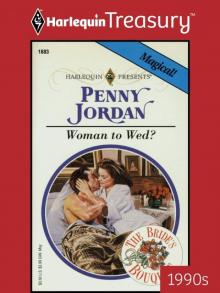 Woman To Wed?
Woman To Wed? Wanting
Wanting The Trusting Game (Presents Plus)
The Trusting Game (Presents Plus)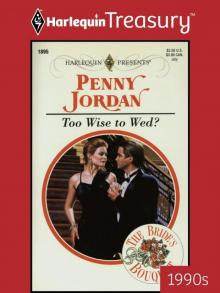 Too Wise To Wed?
Too Wise To Wed? Time for Trust
Time for Trust Out 0f The Night (HQR Presents)
Out 0f The Night (HQR Presents) Dangerous Interloper (Lessons Learned II Book 8; HQR Presents Classic)
Dangerous Interloper (Lessons Learned II Book 8; HQR Presents Classic)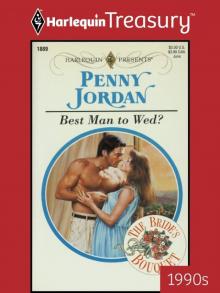 Best Man To Wed?
Best Man To Wed? They're Wed Again
They're Wed Again Out of the Night
Out of the Night An Innocent's Surrender
An Innocent's Surrender Marriage: To Claim His Twins
Marriage: To Claim His Twins Deal With the Devil--3 Book Box Set
Deal With the Devil--3 Book Box Set Matter of Trust
Matter of Trust Vacation with a Commanding Stranger
Vacation with a Commanding Stranger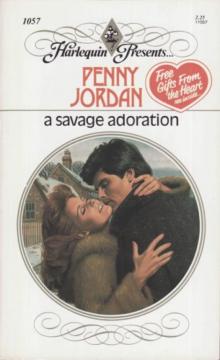 A Savage Adoration
A Savage Adoration The Mistress Purchase
The Mistress Purchase Reclaimed by the Ruthless Tycoon
Reclaimed by the Ruthless Tycoon The Tycoon's Forbidden Temptation
The Tycoon's Forbidden Temptation Sinful Nights: The Six-Month MarriageInjured InnocentLoving
Sinful Nights: The Six-Month MarriageInjured InnocentLoving Bedding His Virgin Mistress
Bedding His Virgin Mistress Escape from Desire
Escape from Desire Claiming His Shock Heir
Claiming His Shock Heir Stronger than Yearning
Stronger than Yearning Return of the Forbidden Tycoon
Return of the Forbidden Tycoon Mission: Make-Over
Mission: Make-Over The Garnett Marriage Pact
The Garnett Marriage Pact Wanting His Child
Wanting His Child A Little Seduction Omnibus
A Little Seduction Omnibus The City-Girl Bride
The City-Girl Bride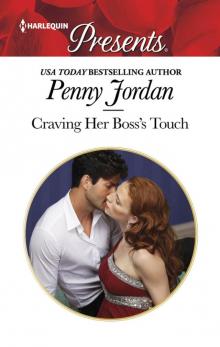 Craving Her Boss's Touch
Craving Her Boss's Touch Starting Over
Starting Over Phantom Marriage
Phantom Marriage The Italian Duke's Virgin Mistress
The Italian Duke's Virgin Mistress One Night in His Arms
One Night in His Arms Force of Feeling
Force of Feeling Forbidden Loving
Forbidden Loving For Better for Worse
For Better for Worse Silver
Silver Rival Attractions & Innocent Secretary...Accidentally Pregnant
Rival Attractions & Innocent Secretary...Accidentally Pregnant A Bride for His Majesty s Pleasure
A Bride for His Majesty s Pleasure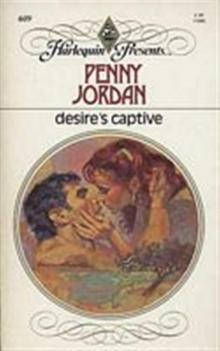 Desire's Captive
Desire's Captive Forgotten Passion
Forgotten Passion Taken Over
Taken Over Taken by the Sheikh
Taken by the Sheikh Sicilian Nights Omnibus
Sicilian Nights Omnibus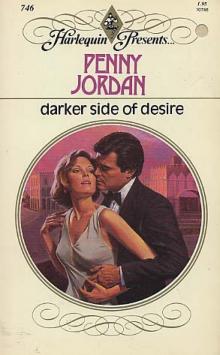 Darker Side Of Desire
Darker Side Of Desire A Royal Bride at the Sheikh s Command
A Royal Bride at the Sheikh s Command The Ultimate Surrender
The Ultimate Surrender A Reason for Being
A Reason for Being A Cure for Love
A Cure for Love Bought with His Name & the Sicilian's Bought Bride
Bought with His Name & the Sicilian's Bought Bride Marriage Make-Up & an Heir to Bind Them
Marriage Make-Up & an Heir to Bind Them Bitter Betrayal
Bitter Betrayal Captive At The Sicilian Billionaire’s Command
Captive At The Sicilian Billionaire’s Command Valentine's Night
Valentine's Night The Convenient Lorimer Wife
The Convenient Lorimer Wife Reawakened by His Touch
Reawakened by His Touch Substitute Lover
Substitute Lover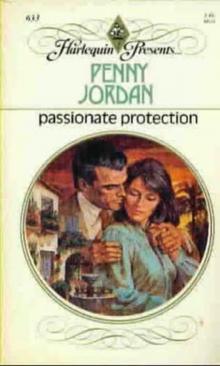 Passionate Protection
Passionate Protection The Hidden Years
The Hidden Years So Close and No Closer
So Close and No Closer Passion and the Prince
Passion and the Prince Virgin for the Billionaire's Taking
Virgin for the Billionaire's Taking Cruel Legacy
Cruel Legacy Payment in Love
Payment in Love The Wealthy Greek's Contract Wife
The Wealthy Greek's Contract Wife Penny Jordan Collection: Just One Night
Penny Jordan Collection: Just One Night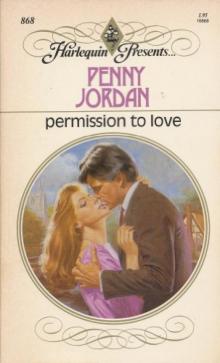 Permission to Love
Permission to Love Beyond Compare
Beyond Compare When the Magnate Meets His Match
When the Magnate Meets His Match A Time to Dream
A Time to Dream Christmas Nights
Christmas Nights Christmas with Her Billionaire Boss
Christmas with Her Billionaire Boss The Sheikh's Baby Omnibus
The Sheikh's Baby Omnibus The Tycoon's Virgin
The Tycoon's Virgin Falcon's Prey
Falcon's Prey Mistress Of Convenience
Mistress Of Convenience The Perfect Father
The Perfect Father Stranger from the Past & Proof of Their Sin
Stranger from the Past & Proof of Their Sin A Little Revenge Omnibus
A Little Revenge Omnibus Loving
Loving Lesson to Learn
Lesson to Learn Second Chance with the Millionaire
Second Chance with the Millionaire Payment Due
Payment Due A Secret Disgrace
A Secret Disgrace Conveniently His Omnibus
Conveniently His Omnibus An Unforgettable Man
An Unforgettable Man The Tycoon She Shouldn't Crave
The Tycoon She Shouldn't Crave Pride & Consequence Omnibus
Pride & Consequence Omnibus The Dutiful Wife
The Dutiful Wife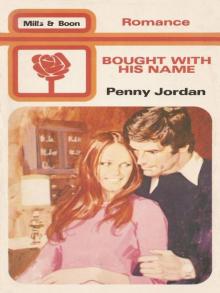 Bought With His Name
Bought With His Name The Friendship Barrier
The Friendship Barrier High Society
High Society The Price of Royal Duty
The Price of Royal Duty A Scandalous Inheritance
A Scandalous Inheritance At His Convenience Bundle
At His Convenience Bundle The Blackmail Baby
The Blackmail Baby Prince of the Desert
Prince of the Desert A Sudden Engagement & the Sicilian's Surprise Wife
A Sudden Engagement & the Sicilian's Surprise Wife Unexpected Pleasures
Unexpected Pleasures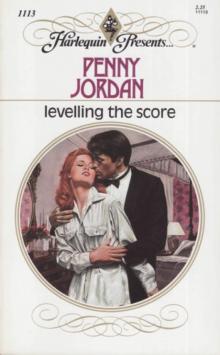 Levelling the Score
Levelling the Score Savage Atonement
Savage Atonement Dangerous Interloper
Dangerous Interloper A Passionate Awakening
A Passionate Awakening Ruthless Passion
Ruthless Passion Time Fuse
Time Fuse Past Passion
Past Passion Her One and Only
Her One and Only The Innocent's Secret Temptation
The Innocent's Secret Temptation A Stormy Spanish Summer
A Stormy Spanish Summer The Marriage Demand
The Marriage Demand Future King's Pregnant Mistress
Future King's Pregnant Mistress Unwanted Wedding
Unwanted Wedding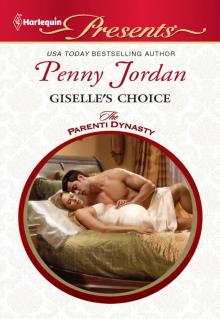 Giselle's Choice
Giselle's Choice Now or Never
Now or Never Blackmailed by the Vengeful Tycoon
Blackmailed by the Vengeful Tycoon Lovers Touch
Lovers Touch Scandalous Seductions
Scandalous Seductions The Power of Vasilii
The Power of Vasilii Possessed by the Sheikh
Possessed by the Sheikh It Happened At Christmas (Anthology)
It Happened At Christmas (Anthology) The Perfect Lover
The Perfect Lover The Flawed Marriage
The Flawed Marriage The Greek's Runaway Bride
The Greek's Runaway Bride An Unbroken Marriage
An Unbroken Marriage Hired by the Playboy
Hired by the Playboy The Blackmail Marriage
The Blackmail Marriage Daughter of Hassan
Daughter of Hassan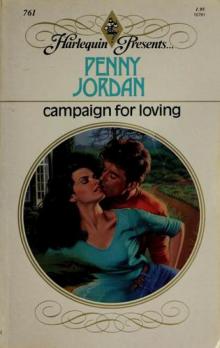 Campaign For Loving
Campaign For Loving The Boss's Marriage Arrangement
The Boss's Marriage Arrangement Seduced by the Powerful Boss
Seduced by the Powerful Boss Marriage Without Love & More Than a Convenient Marriage?
Marriage Without Love & More Than a Convenient Marriage? Bride in Name Only
Bride in Name Only Her Shock Pregnancy Secret
Her Shock Pregnancy Secret Propositioned in Paradise
Propositioned in Paradise The Only One
The Only One The Sicilian s Baby Bargain
The Sicilian s Baby Bargain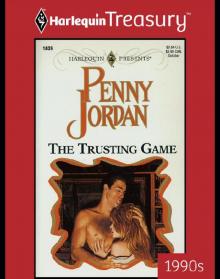 The Trusting Game
The Trusting Game The Most Coveted Prize
The Most Coveted Prize One-Click Buy: September Harlequin Presents
One-Click Buy: September Harlequin Presents In Her Enemy's Bed
In Her Enemy's Bed An Expert Teacher
An Expert Teacher A Rekindled Passion
A Rekindled Passion The Reluctant Surrender
The Reluctant Surrender Shadow Marriage
Shadow Marriage A Scandalous Innocent
A Scandalous Innocent Forbidden Kisses with the Boss
Forbidden Kisses with the Boss Bound Together by a Baby
Bound Together by a Baby Second-Best Husband
Second-Best Husband Response
Response His Untouched Bride
His Untouched Bride A Kind of Madness
A Kind of Madness Past Loving
Past Loving His Blackmail Marriage Bargain
His Blackmail Marriage Bargain For One Night
For One Night Legally His Omnibus
Legally His Omnibus Back in the Marriage Bed
Back in the Marriage Bed Man-Hater
Man-Hater